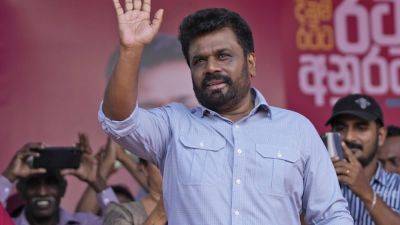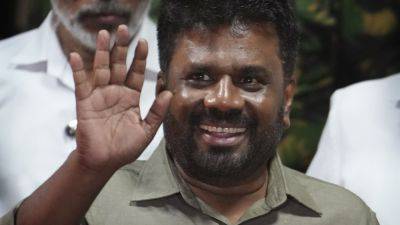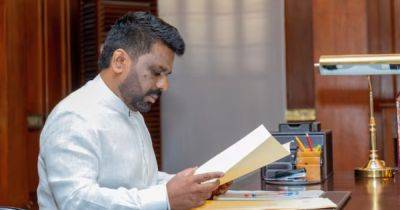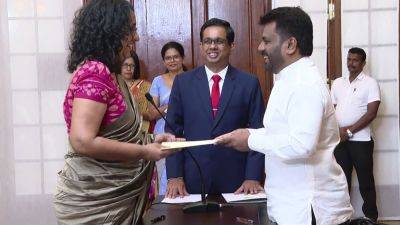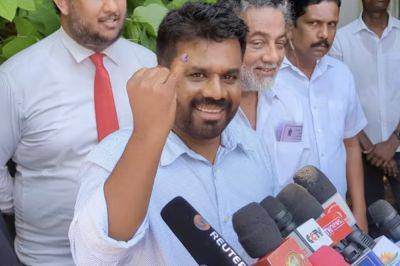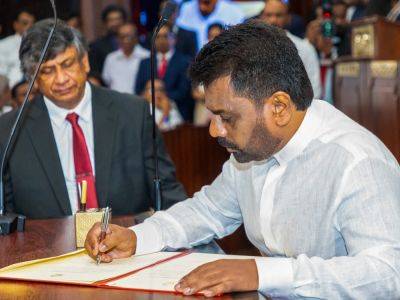Who is Anura Kumara Dissanayake, Sri Lanka’s new Marxist president?
COLOMBO, Sri Lanka (AP) — Marxist politician Anura Dissanayake won Sri Lanka’s presidential election over the weekend, dealing a blow to a political old guard that has been widely blamed for the unprecedented economic crisis that hit the South Asian island nation two years ago.
Dissanayake, whose pro-working class populist campaign won him youth support, secured victory over opposition leader Sajith Premadasa, the runner up; and incumbent President Ranil Wickremesinghe, who took over the country two years ago after its economy hit bottom.
Dissanayake is the leader of National People’s Power alliance, and of the Janatha Vimukthi Peramuna, or People’s Liberation Front, a Marxist political party that waged two unsuccessful armed insurrections in 1970s and 1980s to capture power through socialist revolution.
Early interest in politics
Born on Nov. 24, 1968 into an ordinary family in a paddy-growing central part of Sri Lanka, Dissanayake was politically active from his school days, taking part in student demonstrations against an agreement with India to grant a degree of self rule to Sri Lanka’s Tamil minority in an effort to resolve the demands for autonomy that later erupted into a decades-long civil war.
Dissanayake political involvement was further sharpened when he entered university to read for his science degree and joined the Socialist Students’ Union, the student wing of the JVP, which had already staged one armed insurrection in 1971 before giving up arms and entering politics.
In 1987, the JVP started its second armed insurrection after the government banned the movement, aiming at overturning the deal with India and overthrowing the government. Dissanayake went underground as the government stepped in to violently


